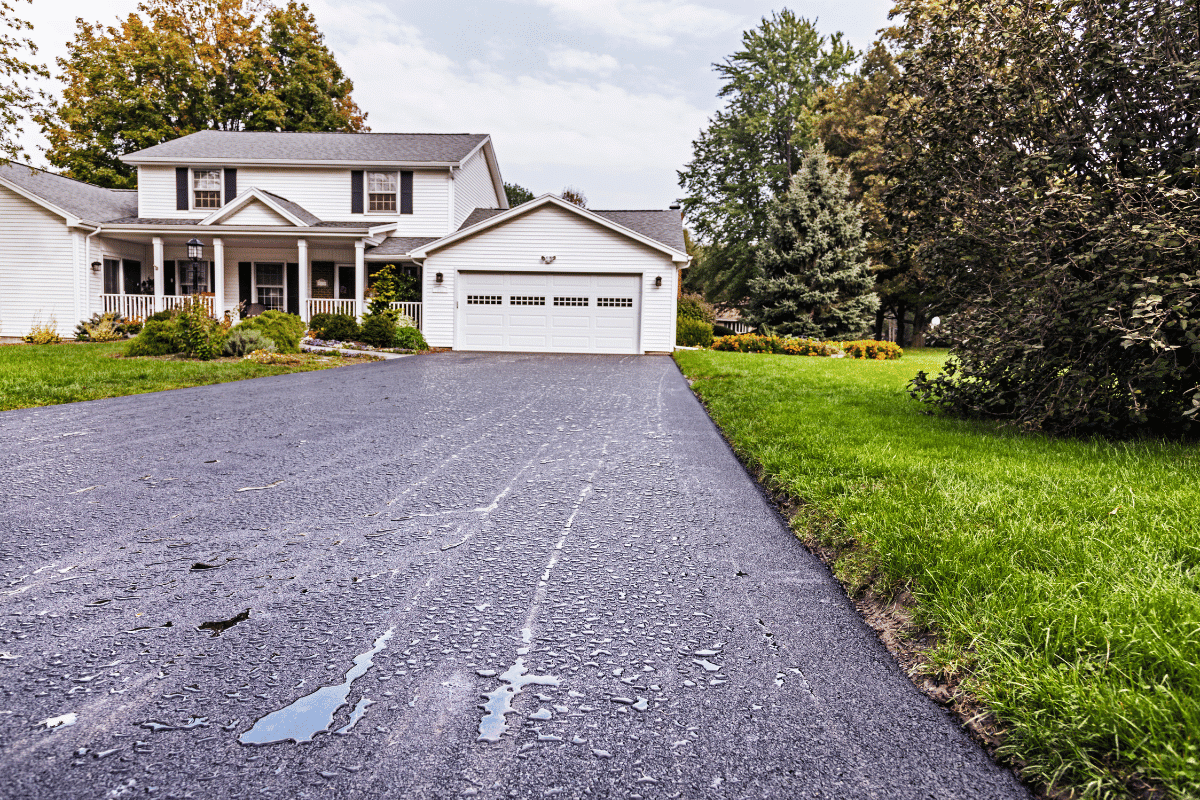Noticing a dip or uneven spots in your driveway? Sinking driveways are a common issue that can develop over time, and while it may start as a small problem, it can eventually lead to larger concerns for both safety and aesthetics. Understanding the underlying causes of driveway sinking can help you take the right steps to maintain your driveway and keep your property looking its best. Here are the seven most common reasons your driveway might be sinking:
1. Poor Soil Compaction
The stability of your driveway starts with the ground it’s built on. If the soil beneath your driveway wasn’t properly compacted during installation, it can settle unevenly over time. Loose soil can shift, creating gaps beneath the concrete. This issue is more prevalent in areas with sandy or loose soil types that naturally settle or move, causing your driveway to dip.
2. Erosion from Water Runoff
Water is one of the most powerful forces of nature, and over time, water runoff can erode the soil beneath your driveway. Poor drainage systems, downspouts pointed toward the driveway, or even heavy rains can wash away the supporting soil, leaving voids that cause the concrete to sink. It’s a slow process that might not be immediately visible but gradually worsens as the soil continues to wash away.
3. Freeze-Thaw Cycles
In regions where temperatures fluctuate, freeze-thaw cycles can significantly impact driveways. When water gets into the soil beneath the driveway and freezes, it expands, pushing the soil upward. When it thaws, the soil contracts and settles, sometimes unevenly. Repeated cycles of freezing and thawing can lead to significant sinking or shifting of your driveway surface.
4. Tree Roots Growing Underneath
While trees add beauty to your landscape, their roots can cause problems for driveways. As tree roots grow and search for water, they can push up against or disrupt the soil beneath your driveway. Over time, this movement can create voids or lift sections of concrete, resulting in an uneven surface.
5. Heavy Loads
Driveways are designed to support the weight of typical vehicles, but excessive or repeated exposure to heavy loads, such as RVs, delivery trucks, or construction equipment, can cause the soil beneath to compress. Over time, this constant pressure can lead to uneven settling and sinking in specific areas, especially if the underlying soil is already prone to shifting.
6. Inadequate Foundation
A strong driveway starts with a solid foundation. If the base layer of your driveway was poorly constructed or not built to proper specifications, it can lead to uneven settling over time. Inadequate foundations may lack the proper thickness or compaction, making them more susceptible to movement as the soil beneath shifts naturally.
7. Time and Natural Settling
Even if your driveway was perfectly installed, natural settling over time can cause sinking. Soil movement, routine wear and tear, and the natural settling process contribute to minor shifts in the ground beneath your driveway. Over years, these small changes can add up, resulting in noticeable dips or low spots.
What You Can Do About It
If your driveway shows signs of sinking, it’s essential to address the problem sooner rather than later. Ignoring these issues can lead to more severe damage, increased repair costs, and potential safety hazards. At FoamWorks, we specialize in lifting and leveling driveways using advanced foam lifting techniques that fill voids and stabilize the surface without the need for costly and disruptive replacement. Our approach is fast, effective, and designed to keep your driveway looking great for years to come.
Don’t wait until the problem gets worse, figure out your sinking driveway causes today. Contact FoamWorks today for a consultation. Let our experts restore your driveway to its best condition with our proven solutions.


1 Comment
[…] an eye on these five warning signs can save you from costlier repairs down the road. Addressing these issues early can extend the life […]
Recent Posts
Recent Comments
Archives
Categories
Meta
Categories